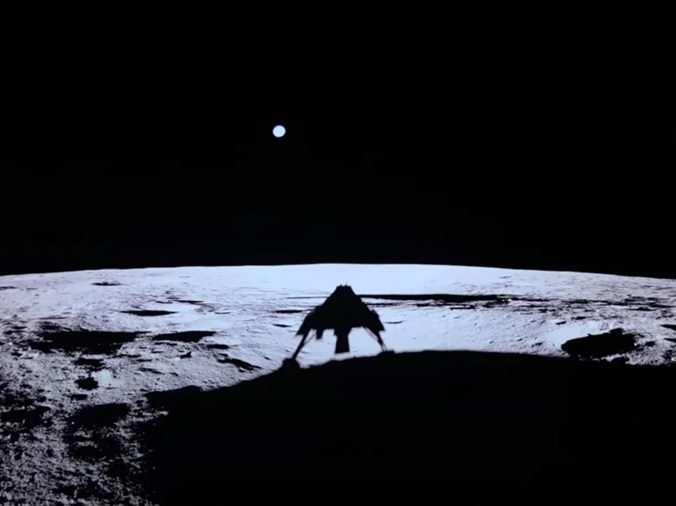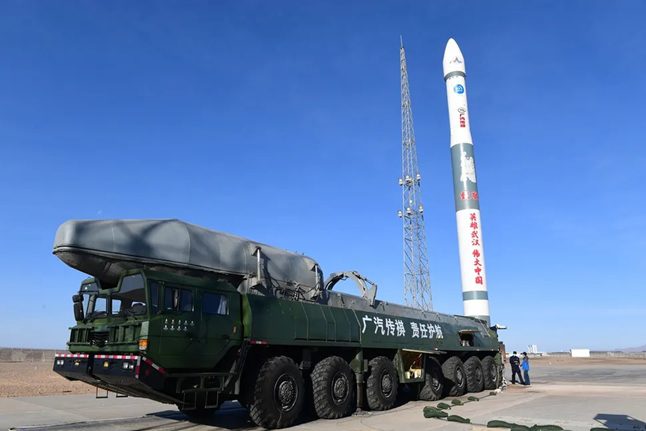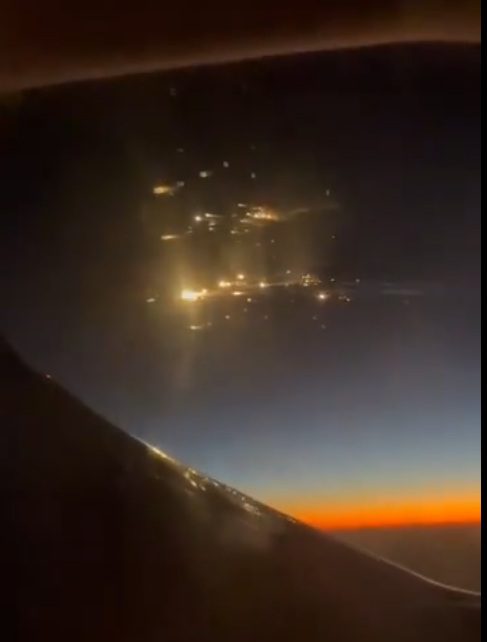As planned, Blue Origin’s New Shepard made its first crewed launch on 20 July, the 52nd anniversary of Apollo 11’s lunar landing. According to the company, Jeff Bezos, Mark Bezos, Wally Funk and Oliver Daemen “officially became astronauts when they passed the Kármán Line, the internationally recognized boundary of space”. In fact, the altimeter reading attached to the launch broadcast topped out at 351,210 feet (just over 107 km), which compares well with the 85 km achieved by Richard Branson and his crewmates on the SpaceShipTwo mission of 11 July.
The New Shepard launch also made the headlines for carrying both the oldest and the youngest person to go to space: Wally Funk (82) is the oldest and Oliver Daemen (18) the youngest. Blue Origin noted that the flight was also “historic” in that it saw the first commercially-licensed suborbital vehicle to fly “paying customers, both payloads and astronauts, to space and back” and because Jeff Bezos and his brother Mark were “the first siblings to ever fly in space together”. Arguably less newsworthy was the fact that Oliver Daemen was the first person to have his ‘astronaut wings’ paid for by his dad (Joes Daemen, the CEO of private equity firm Somerset Capital Partners).
The New Shepard rocket was launched at 1412 GMT from the launch site near Van Horn, Texas, and the booster landed about seven minutes and 20 seconds later. The capsule, named RSS First Step, provided about three minutes of microgravity on its ballistic trajectory and made a fully automated landing at about T+10 minutes 20 seconds.
The participants were predictably exuberant during and after the flight. Although there was no live video of the capsule interior, a continual ‘whooping’ sound could be clearly heard on the capsule audio. Jeff Bezos’ adrenalin-fuelled comments at the subsequent press conference summed up the experience: “Oh my god”, he effused, “My expectations were high and they were dramatically exceeded”. As an amusing but accurate aside, he also thanked “all Amazon customers”, explaining that “you guys paid for all this!”. More seriously, he added that the “most profound piece” of the mission was his impression of the Earth’s “fragility”.
For Wally Funk, one of the ‘Mercury 13’ women who undertook private spaceflight tests in the early years of the Space Race but who, in the end missed out on a NASA spaceflight, it was the culmination of a long-held dream of making it into space. She was the only crew member to offer any critical comments, most notably that “There was not quite enough room for all four of us” which, considering the New Shepard cabin is designed to carry up to six people, is significant. That said, her performance and enthusiasm should generally serve to encourage both women and those of more mature years.
The mission was the 16th New Shepard flight, following a total of 15 test flights, and was the fourth flight for the NS4 booster, which is rated for up to 25 flights. Blue Origin expects to fly two more crewed flights this year, with “many more” crewed flights planned for 2022.
As a footnote, the so-far anonymous winner of Blue Origin’s seat auction – who made a bid of US$28 million – chose not to fly on this inaugural mission, apparently due to “scheduling conflicts”. This leaves one to ponder the fundamental importance of the diary date that could supersede the opportunity to fly with Jeff Bezos into the history books…
Post Script by David Todd: While the arguments on what altitude constitutes true suborbital spaceflight continue, whether the old US Air Force 50 mile (80 km) limit which Virgin Galactic’s SpaceShipTwo can reach, or the “official” Karman line limit of 100 km which Blue Origin’s New Shepard can achieve, the Federal Aviation Authority (FAA) has just “moved the goalposts” for when its “Commercial Space Astronaut Wings” badge will be awarded. The FAA formerly took the US Air Force’s altitude limit used for its astronaut wings badges as the trigger for the FAA’s own award. However, faced with having to hand out thousands of these badges to suborbital space tourists, the FAA has now decided that it will only award these to those who have “demonstrated activities during flight that were essential to public safety, or contributed to human space flight safety.”
In other words, those in control of a spacecraft such as a pilot (which, by the way, the automated Blue Origin New Shepard does not have) or who, airline style, are part of a company’s spacecraft crew, will still get these wings, but not the passengers. This will come as a bitter disappointment to those would-be space “astronauts” flying with both Blue Origin and Virgin Galactic who desperately wanted their astronaut wings “badge of honour”. Thus in this latest spaceflight’s case, presumably Blue Origin founder Jeff Bezos will get his wings as he can count himself as “crew” but perhaps not the others. We hope that at least Wally Funk gets her astronaut wings as well, as it has been a long wait for her.





